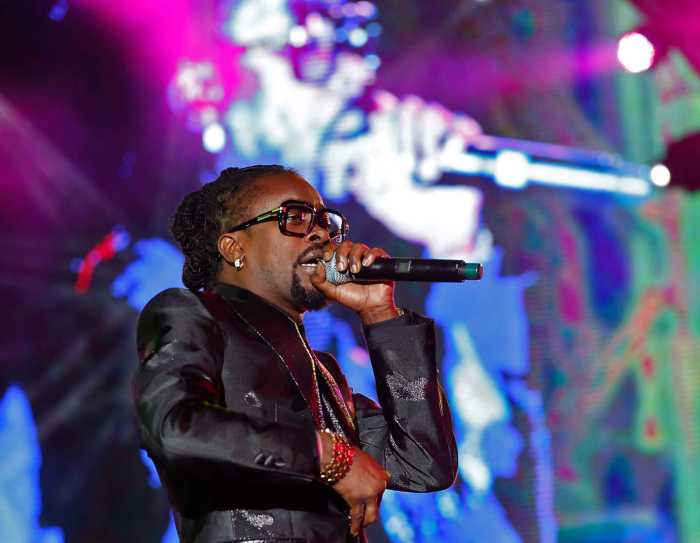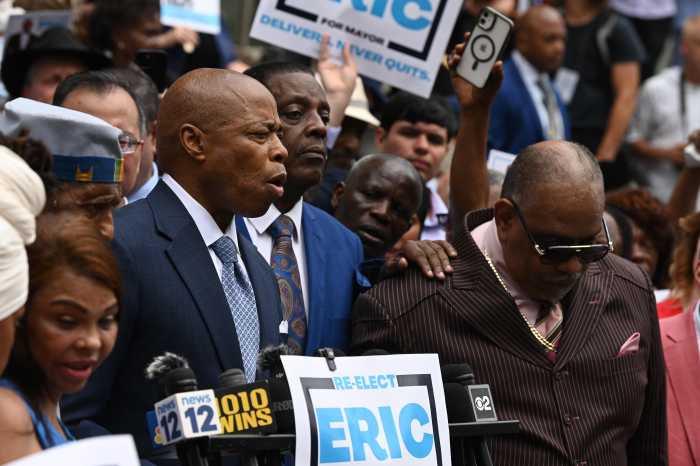On December 1, on what would have been Matthew Shepard’s 27th birthday, Judy Shepard, the mother of the Wyoming college student slain in1998, spoke to Gay City News. In an hour-long interview with Troy Masters, associate publisher, Mrs. Shepard spoke of her reaction to ABC’s “20/20” program on November 26, in which Elizabeth Vargas interviewed Matthew Shepard’s convicted murderers, Aaron McKinney and Russell Henderson at an undisclosed penal institution, apparently outside Wyoming.
Some have criticized ABC for giving prominent broadcast time to two men whose crime has been described as motivated by hatred for gays.
In 1999, following Henderson’s guilty plea and McKinney’s trial, both men were given life sentences in prison. As part of an agreement to avoid a potential death sentence, McKinney signed a gag order document, an agreement which was apparently never imposed, by which the Shepard family agreed to not seek the death penalty in exchange for McKinney’s permanent silence about the case. However, Mrs. Shepard, in the interview, insisted that a gag order was legally imposed.
In documents obtained by Gay City News, an Emmy-award winning filmmaker, Stephen Jimenez, one of the producers for the “20/20” segment, writes to the Shepard’s various times, between 2000 and this year, in hopes of interviewing them for a television film about Matthew Shepard’s life that Jimenez wanted to produce. Dennis and Judy Shepard declined to meet with Jimenez.
Mr. Jimenez stated that he was in contact with production companies to write a screenplay about the murder and sought support from the Shepard’s. In March 2004, Jimenez contacted the Shepard family, telling them that he had concluded the murder was “driven far less by homophobia than the ravages of meth,” a point which the “20/20” program underscores.
Masters opened the interview with Mrs. Shepard by asking Mrs. Shepard about her contact with Mr. Jimenez.
Troy Masters: How long have you been aware of Steve Jimenez?
Judy Shepard: I think the first contact was a letter he wrote me in 2000 asking for my participation in a screenplay he was writing about Matthew’s murder. He has pursued me regularly since. We don’t ever respond to those kinds of correspondences. How did you find out about this?
TM: What are your thoughts on the legal validity of the ‘gag’ order that was agreed to between lawyers in the McKinney sentencing agreement? Some say the gag order might have precluded McKinney from granting the “20/20” interview and others say that since the order was not decreed by the judge upon final sentencing it would not preclude McKinney from talking about the case to any media outlet. What are you thoughts on that?
JS: It actually is part of the final sentence but it is in a closed sentencing document; it wasn’t part of the published document. That doesn’t make it any less valid. Of course there would be issues in legally challenging it, I mean, what we going to do send him to death row now? What we are trying to do is to preclude anyone else from interviewing him in the future. He [McKinney] didn’t seek them out! They sought him out! Jimenez and other producers at “20/20” sought McKinney out. Jimenez got access to McKinney because of his relationship to Henderson’s attorney, current attorney. Everything was spoon-fed to both Jimenez and [Glenn] Silber [another producer of the segment] at ABC. I would guess that is how they got access to both McKinney and Henderson, through the attorney.
TM: So, you are saying then that since a closed sentencing document precluded McKinney from talking, there were public officials who violated the law – turned a blind eye – and allowed him to break the law in granting an interview?
JS: That’s exactly right. If they were still in the Wyoming institution I don’t think they would have been able to get an interview with them. But because they were not there I am not even sure if the whole sentencing agreement went with them. I don’t know.
For ABC to make it sound like this is a big scoop – well of course they’d never spoken to anybody else because they weren’t supposed to. McKinney wasn’t supposed to.
TM: How much do you feel Henderson’s appeal influenced a decision to do the story at this time?
JS: It was totally based on that. This whole thing has been a long-term publicity campaign to lessen Henderson’s legal situation. There’ve been two appeals and they’ve both been denied in federal court. It will be denied again. Legally he has no recourse. The time frames for appeals have gone by. There’s no wiggle room there. They’re done! They weren’t tried or convicted on a hate crime to begin with…there was no hate crime statute in Wyoming. Changing this to a drug deal gone bad has no legal impact on the sentence. Drugs make no difference to the fact that my son was killed.
The “20/20” show simply followed Henderson’s attorney’s outline for his petition…bringing up Henderson’s mother, who was murdered, and the sentencing her killer got…. and for him to say he was not involved in the killing…though there was blood spatter on his clothes.
Henderson said he went back to the truck and watched…that’s not what happened. McKinney went on and on to the police about ‘this career fag’ and all that…in his confession. None of it fits together.
TM: Part of the ‘gag’ order stipulated that if McKinney received any monies related to anything to do with the murder that money was to be given over to the Matthew Shepard Foundation. Do you know if any money was exchanged here? Has a donation been made by McKinney?
JS: They are saying no and I am guessing that is true. No money has been received from McKinney.
TM: How is this going to change Matt’s legacy?
JS: I really don’t think it’s going to change things much. No one ever said this was simply a hate crime. It has always been described as very complex. We know that drugs were part of Henderson and McKinney’s past. There weren’t drugs in their system. They weren’t legally drunk. We know drugs were part of their past. I don’t think this will hurt Matt’s legacy or the foundation.
TM: What did you think of Andrew Sullivan’s comments on the “20/20” piece?
JS: Well, I think it’s very interesting that he’s the only gay community spokesperson they included in the interview. His views on hate-crime and Matt in particular are contrary to most of the other gay community activists. He fit [“20/20’s”] position. Of course they would go to him!
The whole string of the show not having one single person dispute what they say was just terrible…. all that ended up on the cutting room floor. They were interested only in people who conform to their position…what Henderson’s lawyer – the producer’s friend – wanted them to tell.
TM: What struck you most about what Mr. Sullivan said?
JS: Towards the end he said…we should not make this out to be more than it was. They then added my comments to what he said — totally out of context – where I said, “Matt was just a kid.” I was devastated by that. I was deeply upset by what Andrew Sullivan said.
TM: Did Matt seek treatment for his crystal meth use? Were you aware of Matthew’s crystal meth use?
JS: I was. I only know that he did meth, but I don’t think he did it in Laramie. He went there to get away from that. He had lived in Denver and I know he was using there but I don’t know how much. He left Denver to get away from it.
TM: Do you think that moving worked?
JS: Not one of Matt’s friends, in Laramie, other than Tina, who won’t stop talking [Matthew’s friend and frequent media commentator on his murder] was involved in that.
TM: If meth was involved in Matthew’s death, what does it change?
JS: I really wish the world could focus on the fact that my son was killed. Henderson is not a victim…Henderson is now claiming he is a victim? I find it interesting that McKinney was more remorseful for involving Henderson than he was for killing Matt.


































